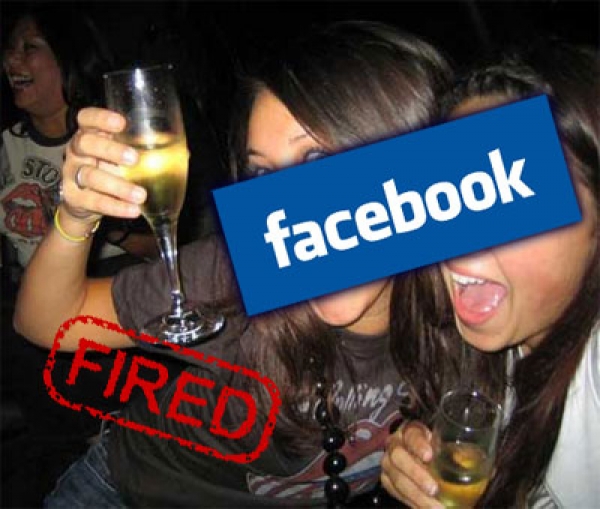With the rise of social media services such as Facebook, Twitter, Pinterest and Instagram, young Americans are sharing more information about themselves than ever with anyone who cares to look. For all the concern over the NSA and government invasion of privacy, the fact is that most people voluntarily expose the most intimate details of their life online with hardly a second thought.
Videos by Rare
It’s important to recognize that these actions have consequences.
It is undeniable that social media is an invaluable tool in the information age, but there is also a dark side. The content of your social media account may be negatively affecting other aspects of your life – sometimes in ways you could never imagine.
Unemployment remains a major problem in America. Labor force participation is down to its lowest level in nearly forty years.
Among the hardest hit by these economic conditions? Millennials, partly due to their limited work experience or a deficit of marketable skills—but also to a lack of business savvy that society is currently doing nothing to remedy.
With the wealth of information available on the internet, most employers are now turning to social media accounts to vet job candidates before even offering so much as an interview.
Given the difficulty in finding a job and the surplus of young workers seeking employment, hiring managers are free to screen out all but the most perfectly qualified applicants, and that means denying opportunities to anyone foolish enough to post less than savory images or comments on their social media accounts.
Ordinarily, we could chalk this up to the proper function of market forces – the best candidates get hired while the others learn from their mistakes and attempt to do better next time.
But those who make bad decisions are doing so at their own cost. There is such a thing as personal accountability. But labor regulations are distorting these processes, thus helping to cultivate disastrous effects on the labor market for future generations.
In other words, young job applicants often don’t know why they aren’t being hired because their potential employers fear legal repercussions if they tell them.
While many employers do admit, when privately surveyed, to using social media to distinguish between potential job applicants, many are fearful from confessing to this practice in a more open and honest way. The prospect of being sued under the provisions of federal anti-discrimination laws is deterring companies from informing applicants of the reasons for their rejection.
No hiring manager wants to say out loud that a Facebook post depicting unsavory behavior deterred him from hiring someone, when that person may easily turn around and sue, claiming discrimination based on sexual orientation, bodily features or even lifestyle choices.
The fear of legal reprisal is causing employers to clam up—and the poor kids who are turned away are left feeling frustrated and confused, unable to understand why they are not getting hired, and unaware that modifications in their social media presence may be necessary to make them employable.
It is all well and good to say that they ought to know this anyway – that it is simply a matter of common sense – but is it fair to expect them to when know one dares tell them?
An entire generation has grown up with social media as a constant, inescapable presence in their lives. It is not unreasonable to assume that the more conservative and less tech-savvy attitudes of their elders may come as something of a mystery to them.
The result is a workforce that is clueless and discouraged, failing to learn from their mistakes for the simple reason that employers are legally barred from treating them honestly. The use of the force of law to push towards tolerance and acceptance of behaviors employers find unacceptable has no real effect on who gets hired, it only masks the reasons for those decisions, to the detriment of all involved.
Labor regulations inevitably cause distortions. Clear signals are essential to any properly functioning market. When the law steps in to obfuscate those signals and get in the way of honest communication between employers and workers, the result will always be a structural mismatch between the kinds of workers demanded and those being supplied.
Unemployment is bad enough on its own, but when young people are being sent the wrong messages about proper professionalism and work etiquette, we have an enduring structural problem that has the potential to become even far worse and more persistent.




